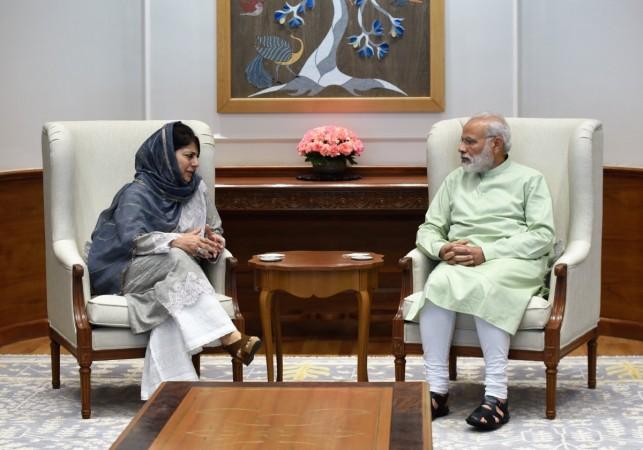
The BJP's decision to quit the alliance with PDP in Jammu and Kashmir has not come a day too late. Prime Minister Narendra Modi and the central government were in a unique position of strength when the BJP struck up a ruling coalition in Jammu and Kashmir in 2014.
Now, as the alliance folds up three-and-a-half years later, what's the government's score card?
The Mehbooba Mufti-led PDP-BJP government in Jammu and Kashmir has pretty little to claim in terms of achievement in close to four years of its rule. On the other hand, there has been a marked deterioration in the security scenario in Jammu and Kashmir. And a lot of promises made by the combine have been left unfulfilled.
Here's a quick recap:
- The security situation has worsened
- More lives have been lost on the Line of control and the international border
- Pakistan has made unprecedented headway in its efforts to make inroads into Kashmir
- Public anger against the security forces and the troop presence has grown
- Lives lost on the troops side is on the upswing
- Even Kashmir's storied tourism has taken a hit as a result of the worsening violence
- Concessions to militant groups haven't translated into any progress in the peace process
- No forward movement in the Kashmiri Pandit issue
- More importantly, the efforts of anti-India forces to internationalise the Kashmir issue have become more successful.
The fault lines
The fault lines in the PDP-BJP alliance have always been visible all these years. Unfortunately, that lack of cohesion in the government was cleverly used by the complex web of militants, non-state actors and the anti-India forces.
A comparison with previous National Conference government led by Omar Abdullah clearly shows how much deterioration has happened under the BJP-PDP government. The central government's recent claim that militancy in Kashmir was in the last stages was all but a joke. In comparison, under Abdullah, the security situation was much more confidence inspiring.
If the PDP-BJP combine gave concessions to the anti-Delhi complex existing in the valley, where are takeaways from it? Even the Ramadan ceasefire was treated by the militants as an opportunity. Violence escalated and India suffered international ignominy when the editor of Rising Kashmir, Shujaat Bukhari, was killed.
Greater internationalisation of Kashmir issue
Perhaps one of the stark and startling fallouts of the PDP-BJP rule was the greater internationalisation of the Kashmir issue. In its first ever report on the Kashmir issue, the UN last week condemned the human rights violations in the valley, directly holding the India government accountable. This open condemnation from the world body was the direct result of the worsening of the security situation in Kashmir and this will be used by India's enemies in the region in the coming years.
When Modi entered into an alliance with PDP at the end of 2014, he was basking in the glory of a thumping victory in the 2014 national elections. He was in a position of strength, and the decision to ally with PDP and take the Kashmir peace process forward was seen as a great promise.
However, as the alliance crumbles, leaving Kashmir in a much worse state, the fault clearly lies with the BJP and the central government. The promises haven't been kept and missteps have marred the state of affairs in Kashmir.










